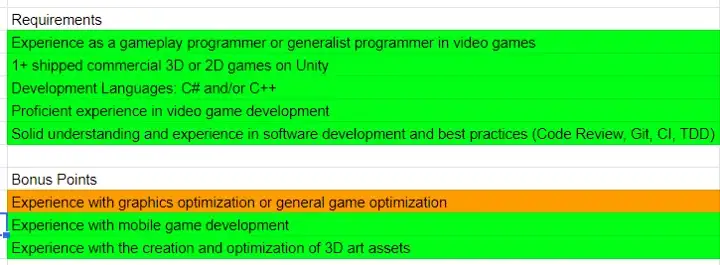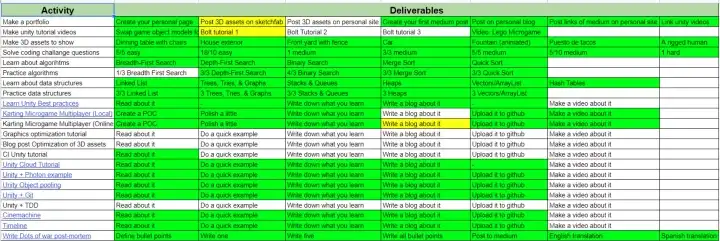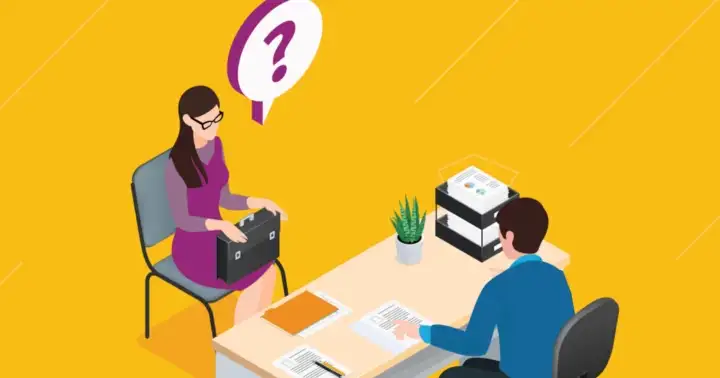How I got into the Game Industry

Hello, my name is Uriel, I’m a .Net Developer that recently changed jobs from Custom/Enterprise software development into Video Games after 9 years. This is how I did it.
Disclaimer: This is all from my perspective working 10 years as a Full Stack Developer in Mexico, then applying for Game Development jobs, and finally getting into a game company in Sweden.
A little background
I got into software development because I really liked computers, and most of all, I really love video games, I thought that if I got into software development I could end up making games someday.
The video game industry is hard, so unless a large AAA company in your country is accepting students or internship regularly, or you have the time/resources to fund your own games and are totally OK with not making any profits for awhile, it’s going to be difficult to break into the game industry, simply right after learning how to program.
So during college and after that I worked as a Software developer doing pretty much everything needed, so my skills were pivoting into Enterprise software development and my tech stack was C#, MS SQL Server and ReactJS, I ended up as a full stack developer.
During those times, I really wanted to make games, so I kept my day job as a web dev, and in my spare time, I started making my own games as a hobby.
It was great! I was using the skills that I learned during the day to do the actual stuff that I wanted to make during the night, I would come up with an idea for a small game and I would continue working on it until it was “good enough” to ship it to the Play Store.
Creating a portfolio

The hard truth is that if you want to work on games as a Software developer, you have to make games, there is no other way around it. So the best way to do it is making small games from start to finish. Ship those games and make it very accessible so others to play those games and give you feedback about it.
If you are saying you have experience making games, your best shot is to prove it having a portfolio where you have an easily accessible way of showing up the games you have worked on. Those games can be very small, like the ones you make on game jams, they can be very ugly, they can use placeholder art, the most important thing about those games is that the games are finished. Showing something complete is way better that showing something as a concept.
This of course doesn’t mean you can’t show a vertical slice of a game idea you have, those are totally great too!
Basically, what recruiters want to see on your portfolio is that you do what you say you can do.
Applying to Jobs

Once I got a portfolio I was comfortable with I started applying for a jobs in the game industry.
There are a lot of job boards with tons of opportunities online (Work with indies, Video Game Industry Jobs, Games Jobs Direct, LinkedIn), so make sure to check them out and see who they are hiring right now and where you could be a good fit, or what areas you should explore before applying for those opportunities.
A word of advice here, so you don’t make the same mistake I was making:
When I start applying for Game Dev jobs, I had experience working on Unity so I was applying for positions that used Unity like “Game Developer”, “Game Designer”, etc, all of this is very valid and you totally should bring it up if that’s your case too during an interview, but in order to work on those positions, it’s expected that you have some knowledge working in another studio full time in a professional manner. That wasn’t my case, all my game projects were made as a hobby on the side.
So your best chance of getting into an interview is looking into the open positions of the game studio you are aiming to get in, and see which position you could be filling translating your current experience with what they are looking for so you can be a better match for them.
This is not to discourage you, but it’s the easiest way to get you in, since as any industry, they are looking for people that can be building software in the shortest amount of time possible.
What I was looking for?
I’m acknowledging that I am privileged, I had a steady job in a great company doing web/power platform development and since I have a wife and a kid to take care of, It would be irresponsible for me to quit my day job and getting into indie game dev or taking the first opportunity that I could.
When I was looking for a job in games, I was looking for positions that had:
- A promising career path.
- Tech that I if learned it, It could be translated into other industries (something not super niche).
- Greats benefits for me and my family, better that the ones I already had, this one was non-negotiable for me.
- A great work environment and life/work balance.
- Remote from Mexico or with relocation to a 1st world country that is not the United States.
Getting rejected, learn from it, try again

I knew that changing careers wouldn’t be easy, so I prepared for it and made myself a promise that I would get 100 rejections before quitting (and try again later), so between 2020 and 2021 I was applying to Game dev jobs if something was looking promising. I probably sent more than 100 applications, but I heard back with a negative response at least 70 times.
I really appreciate the feedback that I got, and even the times that it was an automatic message, having that closure was great, so I wouldn’t be worried that my application was still being reviewed or something.
Having feedback is great because it let you know where you can improve, I was tweaking my resume and portfolio according to the feedback I was receiving, and also I was studying more in the areas that I was having trouble during the interviews.
There is no way around it, you have to apply for jobs, get rejected, adjust your strategy and try again until you are done.
Turn yourself into the best candidate you can be

With rejections and feedback you can plan ahead your next move, for me, it was something like “I need to prove that I know what I’m talking about, even if I haven’t work in another game studio besides my own”
So i came up with a Road map, a spreadsheet to visualize what requirements the positions I was looking for needed and where I was standing regarding those requirements.
Here’s one of the first positions I was aiming for (orange means that I failed)

I would give 6 months between tries on the same company so I kept track on dates that I was applying to
Here are the requirements for that position, I put everything that I was comfortable with on green, and in orange stuff that I would need to study to.

Then I made a list of Activities that would help me understand those subjects, and a list of Deliverables and little steps that would help me learn it. It would also help me to feel a sense of accomplished when I was painting what it was done in green.

This exercise resulted in:
- It helped me to study
- It helped me creating my portfolio.
- Gave the chance to start writing technical posts that I wanted to write.
Tips for the Interview process

I think for people looking to break into the video game industry and coming from smaller countries outside of the United States, China and the European Union, the biggest challenge is being considered for those jobs, even get your resume read by a human can be challenging, so I would recommend to remove any note of your Country/location from your resume before starting applying for jobs, obviously, your current country will come up during the process, but in doing so, you will avoid the automatic HR programs that discard candidates outside specific locations.
In the specific case of programming jobs, what you might expect for the process is something like:
- An initial phone screening to check your background and get to know you better.
- A second interview with the team or a technical interviews, sometimes the steps are different in different companies, sometimes the second interview is a chat with who might be your manager, and sometimes it’s a technical interview. You can always ask to your recruiter about what’s the next step going to look like and if they have tips about what kind of question they might ask. Let’s remember that the interviewer WANT you to be hired, so ask for as much help as you can.
- Once you pass the technical interview, you are “almost” there, sometimes you will still need to have your Team fit interview, or you might already have it, so the next step is a chat with a manger regarding career goals or what to expect in that position. Just be confident with yourself and be honest about it, in this step you can also ask as much questions as you want, you are also interviewing them.
- If everyone gives you the thumbs up, you will move forward and will be on the final step: The job offer, with your salary, benefits and everything about the position. We are not going to talk a lot about the offer because it’s an extensive subject that would need it’s own post.
In a technical interview you might be ask to solve 1 to 3 problems in the language of your choice or a language that’s relevant for the position you are applying to, they also might have a “take home” assignment, that’s basically a mini project that you need to finish by a certain date provided for them.
In a team fit interview they would pair you with one or two members of the team that you might be part of, this interview can include some technical or behavioral questions from the team to you, but remember that you can also ask questions about the organization and how the team handles specifics situations in the day to day job.
The goal of a team fit interview is to know that you are going to be a great part of the team as well as you are going to be comfortable working with team, remember that this step is a two way street, you can ask as many questions as you want if you have some time, they want to get to know you and make sure you are a good fit for them.
Conclusion
When you don’t have a full time job as a video game developer, changing into the video game industry can be hard, but not impossible. I think this is some of the core aspects that helped me switching careers.
- English as a second language. Most of IT jobs out there require a medium to advance level of English, game development is not different, and it’s a great investment in your future.
- Have something to show in your portfolio. Small Games, Vertical slices, video game reviews, tutorials, something made by you that can differentiate you from other candidates.
- Networking. It doesn’t necessary mean assist to in-person events (although it can be fun!), but you can join different discord servers about game development until you find a community that’s a good fit for you.
- Get involved. Besides networking, I helped our local branch of Unity User Group in setting up meetings (back when we still could!), I didn’t know a lot about Unity back in those days but I wanted to be part of the community so I was there listening to the speakers and helping them out in anything I could do.
- Don’t be afraid to apply for jobs. Even if you don’t feel 100% qualified for a job, you’ll never know if you’re a good fit for them until you try. Employers have some leeway for a great candidate and I’m sure he’ll be an excellent one if he puts his mind to it. Being rejected can be daunting, but you’ll never learn if you never try.
If changing careers is something you feel like doing so, I wish you all the best, and hope that this have been helpful to you. Feel free to reach out if you have any questions!
Happy Gamedev!